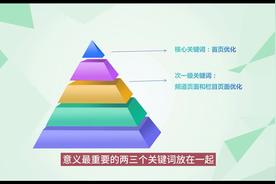Search Engine Optimization, or SEO, is a pivotal component in the success of any website. It is an intricate discipline that involves a meticulous understanding of how search engines operate and how they rank different websites. In order to achieve higher visibility on Search Engine Results Pages (SERPs), website owners must employ strategic SEO techniques. This analysis will delve into core strategies and methodologies that are instrumental in enhancing a website's performance through SEO.
Keyword Research and Implementation
The foundation of effective SEO begins with thorough keyword research. Understanding what phrases and words potential visitors use when searching for content similar to what your website Offers is crucial. Tools like Google Keyword Planner, Ahrefs, and SEMRush provide insights into the popularity and competitiveness of keywords. Strategically placing these keywords within the website’s content, Meta Descriptions, URLs, and header tags can significantly improve search engine rankings.
On-Page SEO
On-page SEO refers to the optimization of a website's internal elements to enhance its relevance and value to both users and search engines. Techniques include optimizing title tags with relevant keywords, crafting compelling meta descriptions, using header tags (H1, H2, H3, etc.) to structure content, ensuring fast page load times, and providing high-quality content that is unique and engaging.
Content Optimization

Content is king in the world of SEO. High-quality, original, and informative content not only keeps visitors engaged but also improves a website's authority. Search engines prioritize websites that offer valuable information, which means content should be accurate, detailed, and updated regularly. The inclusion of LSI (Latent Semantic Indexing) keywords further enhances content relevancy.
Technical SEO
This aspect focuses on the technical aspects of a website that can impact its search engine visibility. Technical SEO includes site architecture optimization, ensuring proper indexing, mobile-friendliness, security (HTTPS), and the use of structured data (rich snippets). These technicalities help search engines to crawl, interpret, and index a website efficiently.
Off-Page SEO
Off-page SEO pertains to actions taken outside of your website that can affect its ranking within search engine results. This primarily involves building high-quality backlinks from reputable websites. Reputable directories, influencer outreach, guest blogging, and social media engagement are all methods to increase domain authority and improve off-page SEO.
Local SEO
For businesses operating in a specific geographical area, local SEO is vital. This involves optimizing a website for local search results by registering on Google My Business, optimizing local keywords, and encouraging customer reviews. Localized link building and creating location-specific content also contribute to improved local search rankings.
User Experience (UX)
A positive user experience is increasingly important for good SEO. This includes having an intuitive and responsive website design, easy navigation, clear calls-to-action, and ensuring that the website is accessible to all users, including those with disabilities. Google's algorithm updates, such as RankBrain, focus on user satisfaction as a ranking factor.
Conclusion
In conclusion, SEO is a multifaceted approach to website optimization that requires ongoing effort and adaptation to algorithm changes. By focusing on keyword research, on-page SEO, content creation, technical considerations, off-page strategies, local optimization, and user experience, website owners can enhance their website's visibility, attract more traffic, and ultimately achieve better conversion rates. Remember, SEO is an ever-evolving field, and staying current with the latest trends and best practices is essential for maintaining a competitive edge in the digital landscape.
评论列表 (0条)